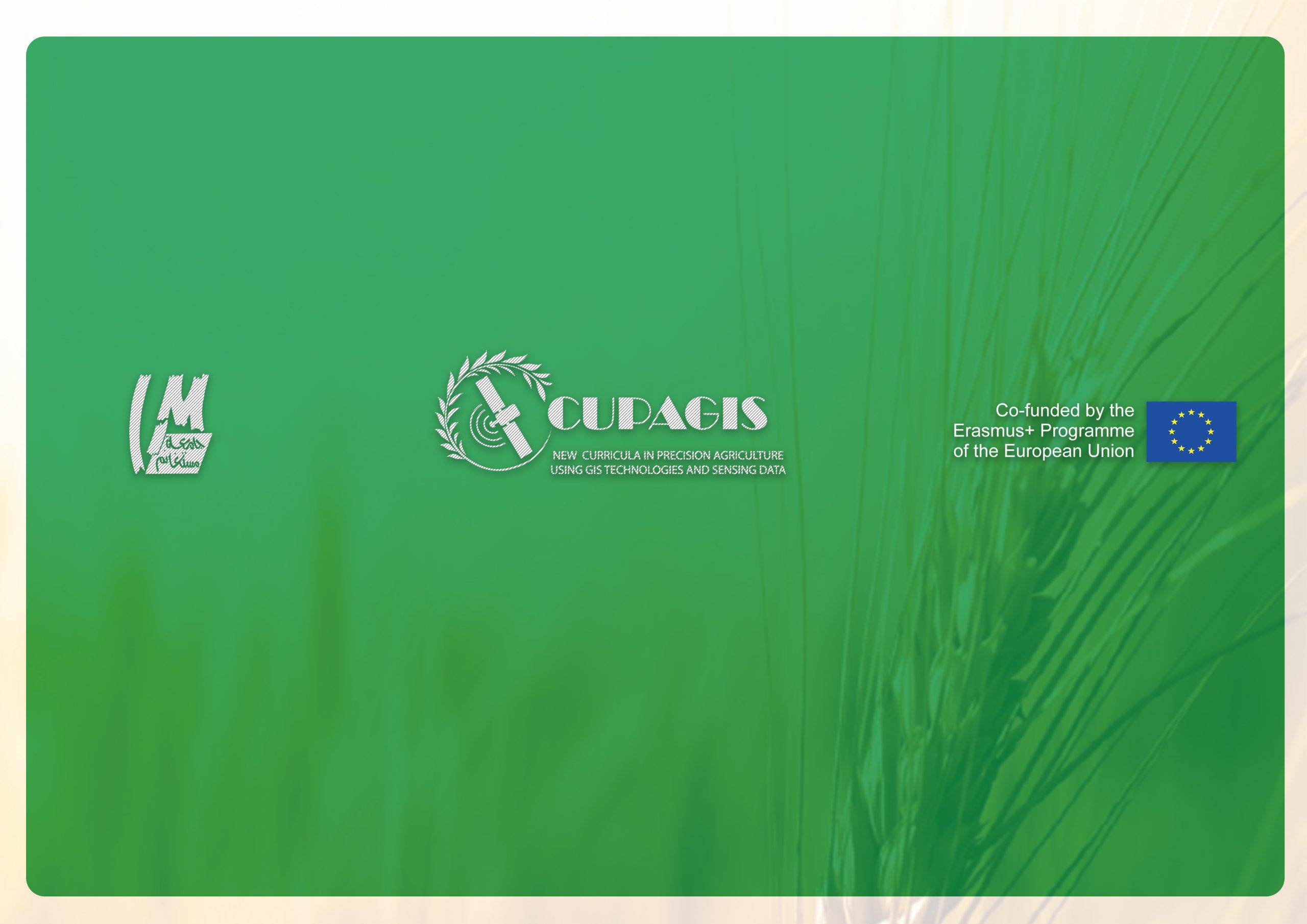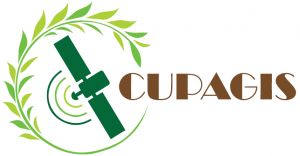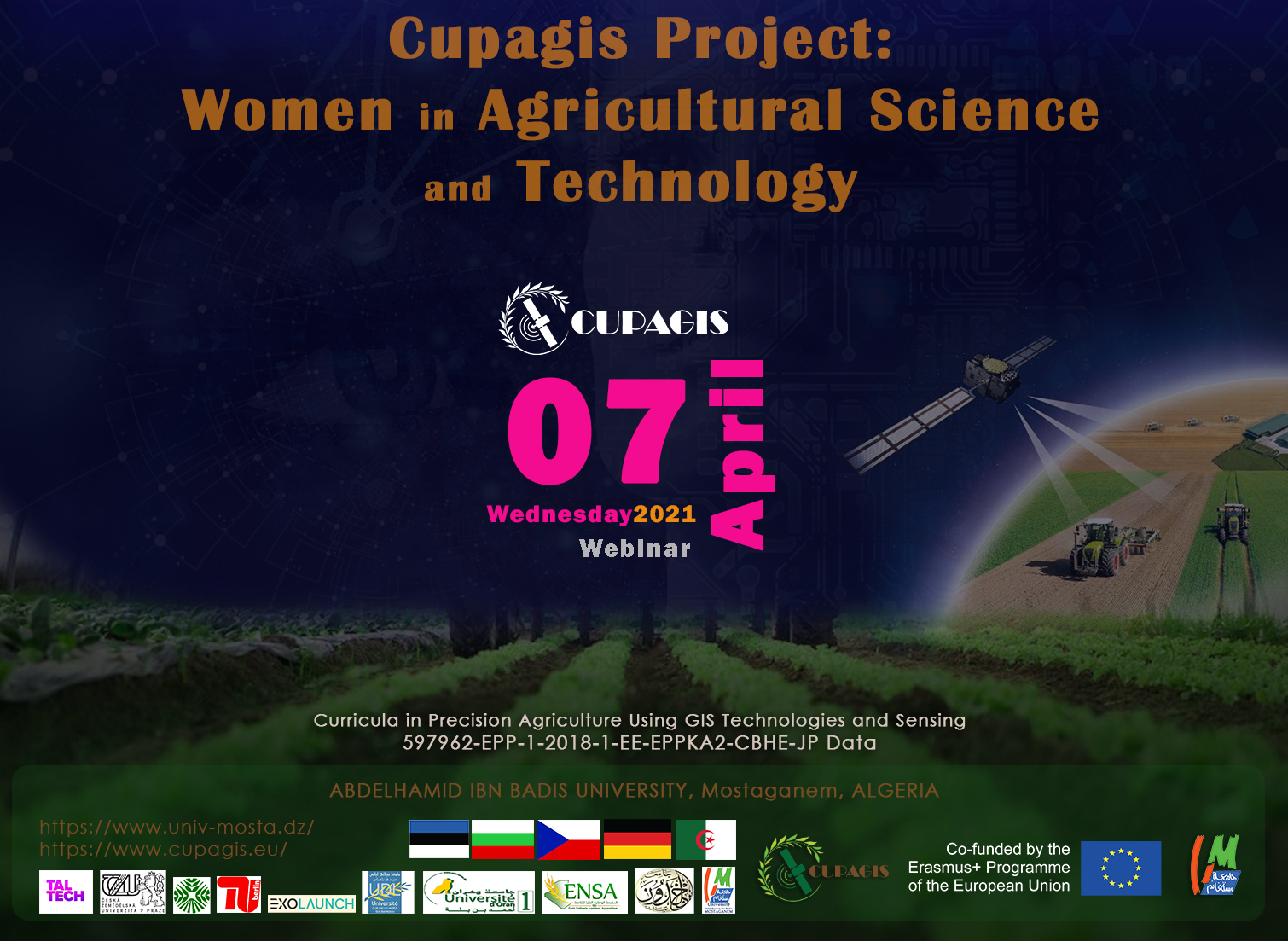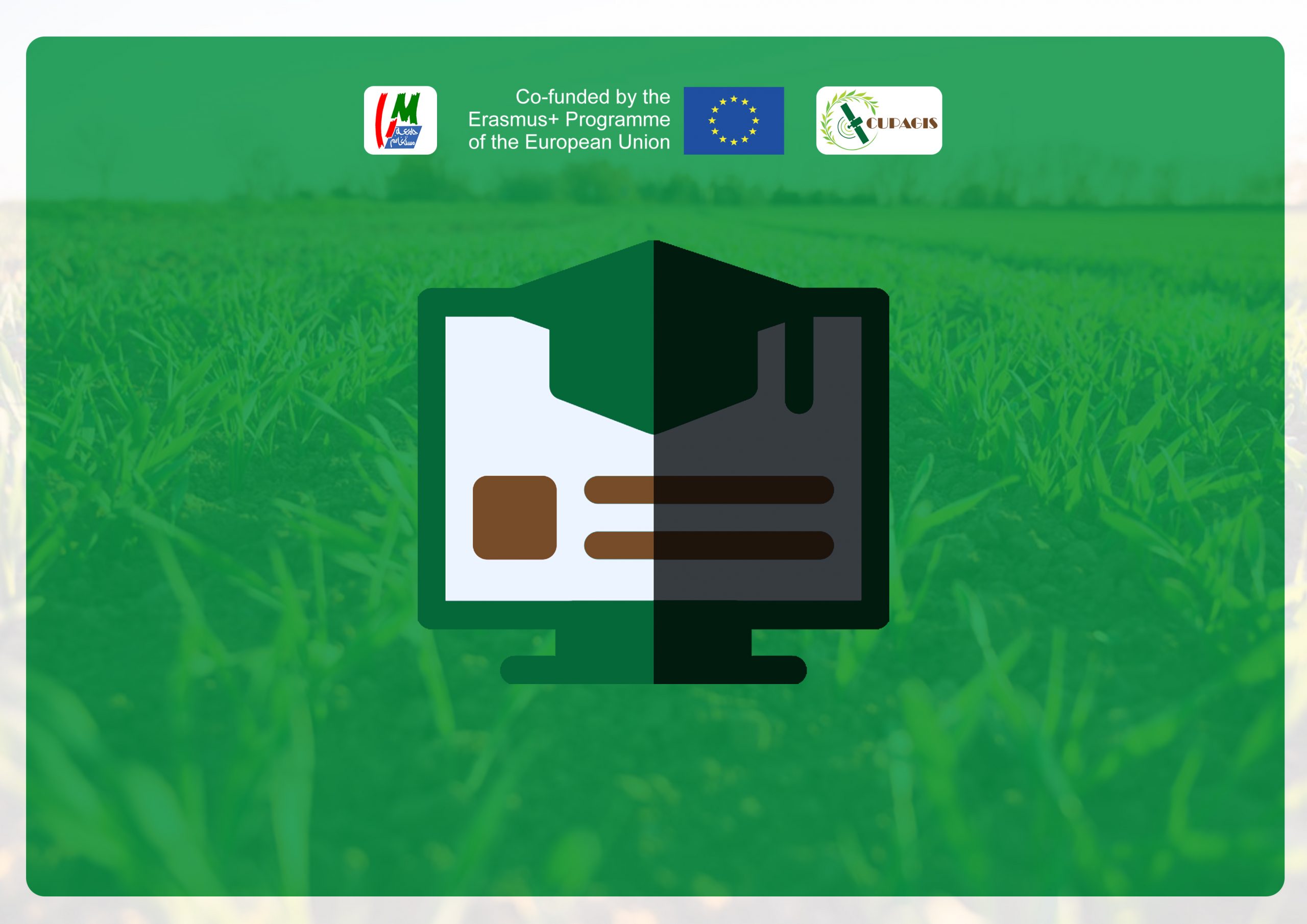CUPAGIS Project 2018-2021

 |
 |
|
Project title : New Curricula in Precision Agriclture Using GIS Technologies and Sensing Data « Nouveaux Programmes de l’Agriculture de Précision et Nouvelles Technologies GIS de Télédétection »
|
|
| Project presentation
The CUPAGIS project is interested in the modernisation of higher education in precision agriculture using new technologies: GIS, big data and remote sensing in targeted universities through innovative curricula,in bachelor’s and master’s degrees, in line with new developments in the field, market demands and in accordance with the Bologna process. The project offers some new educational curricula at EU university level and will change the current state due to rapidly changing labor market needs.
The constraints to develop the proposal of the CUPAGIS project are the major need and interest of the field of agriculture, because the population of the planet is growing rapidly (every day it increases by 240,000 people).
By 2025, the number of people on the planet will reach 8 billion, that is, over the next 8 to 10 years, we will need to increase agricultural capacities as well as productivity by reducing the negative impact on the environment. By 2050, food production must increase by at least 70%. We must therefore expand the capacities of farmers using an innovative approach to establish a more sustainable food production system.
Only one alternative to these vital needs is: precision agriculture, which focuses mainly on environmental factors (soils, plants, weather, etc.). The latter now use intelligent technology based on the use of data from global navigation satellite systems (GNSS for Global Navigation Satellite Systems), remote sensing (RS for Remote Sensing), intelligent sensors and a wide range of applications. , using the latest achievements in space and information technology as well as GIS (for Geographic Information System or GIS in English).
The agricultural sector represents about 10% of Algeria’s GDP (2014) and employs at least 14% of its population, i.e. 8.4 million hectares of arable land representing about 3.5% of its total area. Algerian agriculture is mainly rain-fed and often suffers from drought for several years in a row. Only 12% of this arable land is irrigated. Algeria is highly dependent on imports: approximately $9.33 billion (2016) in agricultural and food commodities each year and is one of the largest importers of wheat ($2.39 billion) and dairy products ($1.16 billion) dollars). The relative improvement in its agricultural development is mainly the Agriculture Development Plan implemented in the year 2000 by the Ministry of Agriculture. The aim is to stimulate the development and production of agriculture, and to orient it towards intensive models and create modern agricultural complexes that facilitate the use and exploitation of public agricultural land.
The Ministry of Agriculture has granted land to investors. The cultivation of these lands would increase the arable land to 9 million hectares by 2020. The integration of specific agricultural technologies would, in turn, facilitate the development process of the sector. With this project, we seek to modernise higher education programmes in the agro-food field in Algeria, based on the results obtained by the European Union (EU), in order to increase the professional opportunities of graduates and the collaboration between the EU and Algeria.
The motivation of the P7 (University of Oran1 Ahmed Ben Bella) and P8 (Ibn-Khaldoun University of Tiaret) is to establish new collaborations with institutions of the EU countries involved in the project in order to strengthen staff exchanges with the ultimate goal of improving existing programmes and introducing new ones. This will contribute positively to the quality of the teaching of our future graduates. More specifically, P9 (Abdelhamid Ibn Badis University – Mostaganem) which promotes interdisciplinary studies and partnership with companies: aspects that would allow to updated the programmes. Currently, precise agriculture is not yetknown in Algeria. However, emerging skills in geomatics for agriculture are developingwithin the agriculture department of P7, which would be a great addition to precision agriculture.
In environmental science departments, there is some experience in the physical and chemical analysis of soil. In addition, research groups work in the areas of digital signal and image processing, image analysis and remote sensing. P8 works on optimisation and data mining, which are certainly key areas to contribute to precision agriculture.
In a more detail, the data available in Agriculture can be analysed in order to specify the agricultural processes. The precision agriculture project is a good opportunity for P6 (Djillali Liabes University – Sidi Bel Abbès) to modernise the region’s agricultural sector using modern technologies and satellite images, to develop new curricula for master and doctoral and to initiate joint research projects in the future.
The strategic development plans of the EU and Algeria aim to promote digital and smart technologies in agriculture through National Spatial Data Infrastructures (NSDI), however the lack of experts having the skills to understand, convert and interpret the accumulated data into a form applicable to that purpose is felt. The target universities are also very interested in cooperating with companies involved in this issue/theme in order to broaden the curricula taking into account the specificities of agriculture in Algeria.
| Objectives
The CUPAGIS project defines the specific objectives as follows:
-
- Review the current curricula in precision agriculture in Algeria;
- Develop and adopt guidelines on teaching strategies and design of new curricula
- Develop / implement / accredit new core and transferable modules, moving towards an innovative teaching / learning environment; according to the specificity of our teaching
- Update the current Bachelor / Master curricula in the target area;
- Develop/implement innovative teaching / learning environments; given the agricultural nature of the country
- Evaluate the new curricula and teaching/learning environment through pilot implementation;
- Bringing higher education institutions closer to labour market.
The activity plan includes a series of steps to achieve measurable and concrete results that must be used to achieve concrete results in changing the current situation. This includes:
-
- Review of the current curricula in the target universities in Algeria for Bachelor/Master,
- Agreement on a pedagogical strategy and guidelines for the design of Bachelor/Master’s curricula (Teaching Units),
- Development of a set of new core curricula and cross-cutting modules, adoption of new nationally accredited curricula and modules (supervisory validation (P11) of training offers),
- Preparation of a set of documentation for CUPAGIS; purchase of hardware including software.
- Definition of criteria for the selection of participants in and retraining programmes for university professors. Retraining of university teachers in the new curricula using innovative teaching and learning facilities and agreed teaching strategies,
- Update of the current Bachelor/Master’s curricula in the target area and creation of new ones,
- Classroom management in the new curricula / CUPAGIS pilot operations,
- Establishment of a communication plan by publicising the project (website, Facebook, flyers, posters, radio and TV broadcasts, written press, communications, meetings, workshops, etc.),
- Development of a Quality Assurance (QA) strategy for each partner university including internal and external quality assessment reports,
- Establishment of a PASENSO documentation base / purchase / installation of equipment / institution,
- Training of staff / pilot operation of PASENSO / establishment of a regional / international PASENSO network,
- Updating of training courses for PASENSO graduates,
- Organisation of summer schools for Bachelor and Master.
| Partenaires (Consortium) du Projet CUPAGIS
|
Partner N° |
Name of the organisation |
Country/city |
Contact |
|
|
P1 |
Tallinn University of Technology |
Tallinn, Estonia |
Prof. TarmoSoomere |
tarmo.soomere@cs.ioc.ee |
|
P2 |
TechnicalUniversity of Berlin |
Berlin, Germany |
Prof. Brieß/Elena Eyngorn |
elena.eyngorn@tu-berlin.de |
|
P3 |
Agricultural University Plovdiv |
Plovdiv, Bulgaria |
Assos. Prof. D. Atanasov /Prof. HristinaYancheva |
d.atanasov@au-plovdiv.bgrector@au-plovdiv.bg |
|
P4 |
CeskaZemedelskaUniverztity v Praze |
Prague, CzechRepublic |
Prof.F.Kumhála |
kumhala@tf.czu.cz |
|
P5 |
ECM space technologies GmbH |
Berlin / Germany |
Dr. A.Sterenharz |
Arnold.sterenharz@ecm-space.de |
|
P6 |
DjillaliLiabesUniversity |
Sidi Bel Abbès, Algeria |
Prof. A. Kadoun |
akadoun@yahoo.com |
|
P7 |
Ahmed Ben Bellauniversity – Oran |
Oran, Algeria |
Prof.S. Balaska /Prof. Y. Lebbah |
sbalaska@yahoo.comylebbah@gmail.com |
|
P8 |
Ibn-KhaldounUniversity Tiaret |
Tiaret, Algeria |
Prof.M.Maatoug |
maatoug.moh@gmail.com |
|
P9 |
Abdelhamid ibn badisuniversity Mostaganem |
Mostaganem, Algeria |
Dr.H.Benoudnine |
hbenoudnine@gmail.com |
|
P10 |
National Higherschool of agronomy |
Algiers, Algeria |
Prof. Laribi Abdelkader |
abdelkader.laribi@edu.ensa.dza.laribi@ensa.dz |
|
P11 |
Ministry of HigherEducation and Scientific Research |
Ben Aknoun, Algeria |
Mr. Khecheni Karim |
k.khecheni@mesrs.dz |
| Evolution :


